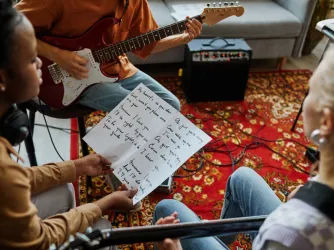Table of Contents
How Campus Activism Helped Me Gain a Greater Appreciation for Freedom of Speech

In recent years, many discussions about student activism on college campuses have cast freedom of speech as a hindrance to social justice or other objectives of campus activism. This characterization creates an unhelpful and false dichotomy between two concepts that are inherently linked. Simply put, without robust First Amendment guarantees, social justice movements would not be able to exist and thrive on campus.
Even “acceptable” and “progressive” speech is not free from the threat of censorship. Indeed, some of the most vigorously censored speech on campus in recent years has been that of social justice-minded drug policy reform groups. In the past year alone, student chapters of the National Organization for the Reform of Marijuana Laws (NORML) advocating for drug policy reform at both Iowa State University and the University of Missouri were censored by university administrators for t-shirts that depicted marijuana leaves.
As a student activist focused on drug policy reform, I experienced some of this censorship firsthand due to my involvement with Hash Bash, an annual rally for marijuana legalization at the University of Michigan (UM). This experience reinforced not only my commitment to destigmatizing discussions around drug policy, but also to standing up for student speech rights.
Since arriving at UM, I have been involved with Students for Sensible Drug Policy (SSDP) and the undergraduate chapter of NORML. These organizations introduced me to Hash Bash, where I volunteered for two years before being invited to serve on the organizing committee during my junior year. As a student organizer, I secured the necessary permits and reserved space for the rally in addition to serving as an emcee during the event. Throughout this process, the university administration was helpful and even supportive of our work.
Our efforts culminated in a successful rally with more than 8,000 attendees on a cold and snowy April 2nd. As an emcee, I introduced speakers from Law Enforcement Against Prohibition (LEAP), the parents of children who had been helped by medical marijuana, and many others including activists, journalists, and politicians. As in the past, Hash Bash was a powerful event that demonstrated the popular support for drug policy reform in Michigan. Politically, Hash Bash 2016 also drew support and signatures for the “MI Legalize” campaign to give Michigan voters the opportunity to cast a vote for statewide legalization of recreational marijuana.
Although the event had gone smoothly, a few weeks later I received a letter from the university indicating that I was facing disciplinary action for posting a picture of myself holding a microphone during the rally to my personal Facebook account. As a member of UM’s Residence Staff (ResStaff), I had apparently violated the “values of the Residence Education” for posting about my involvement in the rally. I was shocked, not only because UM is a public institution and thus is legally obligated to protect students’ First Amendment rights, but also because the rally itself supported the type of social justice cause that I had pledged to support when I joined ResStaff. In the end, the situation was resolved and the allegations were dropped after timely intervention from FIRE, but the experience left a lasting impression on me and my peers.
It was obvious to us, in a way that before had only been abstract, that supporting free speech rights was inseparable from the work that we were doing to advance drug policy reform. Without a robust commitment to free speech from the university and students alike, we could not host campus protests, distribute literature, or gather signatures for ballot initiatives.
Freedom of speech is for students of all ideologies and political persuasions, and for students advocating for all manner of causes. If a university can censor the speech of one group for not aligning with its preferred values, then that is cause for concern among all students regardless of how popular they think their current cause is with the administration.
That’s a lesson students should keep in mind at all times.
Erin Dunne is a FIRE summer intern.
Recent Articles
Get the latest free speech news and analysis from FIRE.

Why FIRE is suing Secretary of State Rubio — and what our critics get wrong about noncitizens’ rights


LAWSUIT: FIRE challenges unconstitutional provisions Rubio uses in crusade to deport legal immigrants over protected speech
